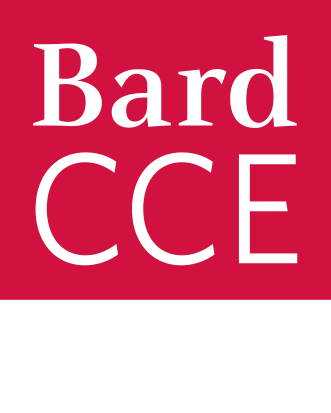Debating a Pressing Question on the American Left: Should Progressives Stay with the Democrats or Break Away?
Members of the Bard Debate Union pose for a portrait after their recent public debate event. Back row, left to right: Yale Coopersmith, Magdalena Novak, and Panhavotey Chea. Front row, left to right: Annaliese Simons, Dmitriy Churin, and Lachlan Ondre. Photo by Robin Kaiküll.
The Bard Debate Union recently hosted a public event on a pressing political question for the American left: Should progressives continue to work within the U.S. Democratic Party, or break away? Moderated by Clarence Brontë, Assistant Director of the Debate Union, the event featured six speakers representing both sides of the issue.
Speakers advocating for progressives to leave the Democratic Party pointed out that the party has repeatedly failed to represent leftist ideals. “On issues like environmentalism, we see Democrats not living up to progressive values,” said the first debater. They also criticized the party’s failure to support progressive figures, such as Senator Bernie Sanders, who has twice run for the Democratic presidential nomination but struggled to gain full party backing. “It makes no sense for someone to support a party that does not support them,” said the speaker.
Speakers who advocated against leaving the Democratic Party acknowledged the frustrations of working within a centrist framework but argued that progressives have already made substantial gains from inside. “The Build Back Better Act in 2021 was a massive win for progressives,” said one speaker, referencing the national social spending bill, which included provisions for healthcare, child care, and climate action. “That would not have been possible without progressive lawmakers working within the democratic system,” they said.
Another speaker emphasized the reality of the United States’ deeply entrenched two-party system. “A third party would struggle to gain traction,” they said. “The Democratic voter base is large and consistent, and progressives can make their voices heard within the party, rather than splintering and weakening their influence,” they said, referring to the much-debated effects of the Green Party's 2016 presidential nominee, Jill Stein. It was also asserted that the Democratic Party stands solid on issues such as diversity; “Without the Democrats, progressive ideas would not be able to reach the mainstream,” one debater said.
Audience members also voiced their own concerns, highlighting the ongoing polarization in American politics. One question raised was whether a shift toward a third party might benefit or further alienate voters: “A radical switch would be unprecedented, but could it also be what the country needs?”
Another audience member pointed out that many Americans might actually reject the two-party system and others argued that progressives could unite people across the political spectrum. “Progressives have the opportunity to appeal to both Democrats and disillusioned Republicans if they find the right language,” said one participant. “There’s more that unites Americans than divides them when it comes to what they want.”
While not an exhaustive survey of the topic, the debate contributed to a broader national conversation that has manifested on campus in a variety of ways, providing a platform for students in Annandale to explore the potential challenges and benefits of progressive politics in the United States. As political divisions continue to widen nationally, the conversation on Bard’s campus will most likely continue to resonate far beyond.
Post Date: 10-10-2024
